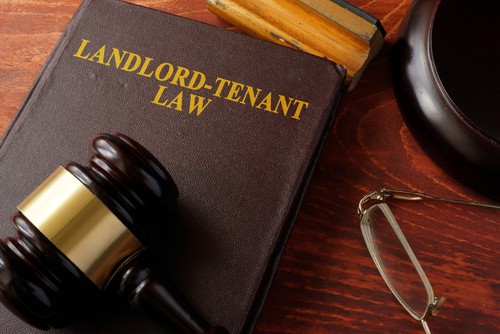California’s Landlord Tenant Evictions: Into the Unknown
On March 4, 2020, Governor Newsom declared a “state of emergency.” The Governor’s edict was in response to COVID-19. The Governor issued an executive order which initially banned evictions of individuals affected by COVID-19 through May 31, 2020. Prior to the expiration of the stay of all evictions, the Judicial Council interjected with their own Emergency Rule. The Judicial Council’s Emergency Rule prohibited the issuance of a “summons on a complaint for unlawful detainer unless the court finds, in its discretion and on the record, that the action is necessary to protect public health and safety.” The rule remains “in effect until 90 days after the Governor declares that the state of emergency related to the COVID-19 pandemic is lifted, or until amended or repealed by the Judicial Council. On June 30, 2020, Governor Newsom extended the authorization for local governments to halt evictions, giving local communities the right to extend moratoriums through September 30, 2020. The extension was silent as to the status of the March “state of emergency.” Are we still in a “state of emergency”? Regardless, many cities have already exercised their purported right to extend the eviction moratorium and provide additional protections for tenants, regardless of proof of COVID-19 hardship.
Although the authorization for local governments is intended to halt evictions for renters impacted by the COVID-19 pandemic, there appears to be a significant disconnect between the multiple Orders and the practical application by the courts and the numerous levels of government. This confusion has not only plagued the courts, resulting in refusal to accept unlawful detainer filings 1 , regardless of COVID-19 impact, but has also created significant uncertainty among judges, landlords, tenants, lawyers and the public at large. A significant amount of the justified frustration and fear is the direct result of the lack of guidance. Landlords are frustrated as to the ability to enforce their rights and obligations as landlords; Many tenants are fearful as to when the obligations to actually pay rent will resume; and Courts are uncertain as to when an eviction case is truly impacted by COVID-19. On balance, the system lacks clarity,
without meaningful guidance in sight.
What this means to you as a renter or landlord?
It is the author’s opinion that no one, including the Governor, fully understands or has considered how the eviction moratoria can rationally be implemented. Is the extension of the eviction moratorium an extension of the statewide emergency order? Is the Governor’s sole purpose to provide tenants additional time to pay their rent, while waiting for the legislature to act? Is the Governor’s purpose to establish the living conditions for renters?
Regardless of the purpose, as a landlord or a tenant, you have legal rights. It is important to fully understand those rights and obligations. Otherwise, the uncertainty is bound to create frustration and fear for all parties, landlords and tenants alike. Until clarification is provided, we will continue monitoring the status.


